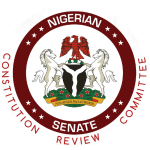Section 230. Establishment of the Supreme Court of Nigeria
(1) There shall be a Supreme Court of Nigeria.
(2) The Supreme Court of Nigeria shall consist of –
(a) the Chief Justice of Nigeria; and
(b) such number of Justices of the Supreme Court, not exceeding twenty-one, as may be prescribed by an Act of the National Assembly.
Section 231. Appointment of Chief justices of Nigeria and justices of the Supreme Court
(1) The appointment of a person to the office of Chief Justice of Nigeria shall be made by the President on the recommendation of the National Judicial Council subject to confirmation of such appointment by the Senate.
(2) The appointment of a person to the office of a Justice of the Supreme Court shall be made by the President on the National Judicial Council subject to confirmation of such appointment by the senate.
(3) A person shall not be qualified to hold the office of Chief Justice of Nigeria or a Justice of the Supreme Court, unless he is qualified to practice as a legal practitioner in Nigeria and has been so qualified for a period of not less than fifteen years.
(4) If the office of Chief Justice of Nigeria is vacant or if the person holding the office is for any reason unable to perform the functions of the office, then until a person has been appointed to and has assumed the functions of that office, or until the person holding has resumed those functions, the President shall appoint the most senior Justice of the Supreme Court to perform those functions.
(5) Except on the recommendation of the National Judicial Council, an appointment pursuant to the provisions of subsection (4) of this section shall cease to have effect after the expiration of three months from the date of such appointment, and the President shall not re-appointment a person whose appointment has lapsed.
Section 232. Original jurisdiction.
(1) The Supreme Court shall, to the exclusion of any other court, have original jurisdiction in any dispute between the Federation and a state or between states if and in so far as that dispute involves any question (whether of law or fact) on which the existence or extent of a legal right depends.
(2) In addition to the jurisdiction conferred upon it by subsection (1) of this section, the Supreme Court shall have such original jurisdiction as may be conferred upon it by any Act of the National Assembly. Provided that no original jurisdiction shall be conferred upon the Supreme Court with respect to any criminal matter.
Section 233. Appellate jurisdiction.
(1) The Supreme Court shall have jurisdiction, to the exclusion of any other court of law in Nigeria, to hear and determine appeals from the Court of Appeal.
(2) An appeal shall lie form decisions of the Court of Appeal to the Supreme Court as of right in the following cases –
(a) where the ground of appeal involves questions of law alone, decisions in any civil or criminal proceedings before the Court of Appeal;
(b) decisions in any civil or criminal proceedings on questions as to the interpretation or application of this constitution,
(c) decisions in any civil or criminal proceedings on questions as to whether any of the provisions of Chapter IV of this Constitution has been, is being or is likely to be, contravened in relation to any person;
(d) decisions in any criminal proceedings in which any person has been sentenced to death by the Court of Appeal or in which the Court of Appeal has affirmed a sentence of death imposed by any other court;
(e) decisions on any question –
(i) whether any person has been validly elected to the office of President or Vice-President under this Constitution,
(ii) whether the term of office of office of President or Vice-President has ceased,
(iii) whether the office of President or Vice-President has become vacant; and
(c) such other cases as may be an Act of the National Assembly.
(3) Subject to the provisions of subsection (2) of this section, an appeal shall lie from the decisions of the Court of Appeal to the Supreme Court with the leave of the Court of Appeal or the Supreme Court.
(4) The Supreme Court may dispose of any application for leave to appeal from any decision of the Court Appeal in respect of any civil or criminal proceedings in the record of the proceedings if the Supreme Court is of opinion that the interests of justice do not require an oral hearing of the application.
(5) Any right of appeal to the supreme Court from the decisions of the Court of Appeal conferred by this section shall be exercisable in the Case of civil proceedings at the instance of a party thereto, or with the leave of the Court of Appeal or the Supreme Court at the instance of an person having an interest in the matter, and in the case of criminal proceedings at the instance of an accused person, or subject to the provisions of this Constitution and any powers conferred upon the Attorney-General of the Federation or the Attorney-General of a state to take over and continue or to discontinue such proceedings, at the instance of such other authorities or persons as may be prescribed.
(6) Any right of appeal to the Supreme Court form the decisions of the Court of Appeal conferred by this section shall, subject to section 236 of this Constitution, be exercised in accordance with any Act of the National Assembly and rules of court for the time being in force regulating the powers, practice and procedure of the Supreme Court.
Section 234. Constitution
For the purpose of exercising any jurisdiction conferred upon it by this Constitution or any Law, the Supreme Court shall be duly constituted if it consists of not less than five Justices of the Supreme Court:
Provided that where the Supreme Court is sitting to consider an appeal brought under 233(2)(b) or (c) of this Constitution, or to exercise its original jurisdiction in accordance with section 232 of this Constitution, the Court shall be constituted by seven Justices.
Section 235. Finality of determinations
Without prejudice to the powers of the President or of the Governor of a state with respect to prerogative of mercy, no appeal shall lie to any other body or person from any determination of the Supreme Court.
Section 236. Practice and procedure
Subject to the provisions of any Act of the National Assembly, the Chief Justice of Nigeria may make rules for regulating the practice and procedure of the Supreme Court.
Section 237. Establishment of Court of Appeal
(1) There shall be a Court of Appeal.
(2) The Court of Appeal shall consist of –
(a) a President of the Court of Appeal; and
(b) such number of Justices of the Court of Appeal, not less than forty-nine of which not less than three shall be learned I Islamic personal law, and not less than three shall be learned in Customary law, as may be prescribed by an Act of the National Assembly.
Section 238. Appointment of President and Justices of the Court of Appeal.
(1) The appointment of a person to the office of President of the Court of appeal shall be made by the President o the recommendation of the National Judicial Council subject to confirmation of such appointment by the senate.
(2) The appointment of a person to the office of a Justice of the Court of Appeal shall be made by the President on the recommendation of the National Judicial Council.
(3) A person shall not be qualified to hold the office of a Justice of the Court of Appeal unless he is qualified to practise as a legal practitioner in Nigeria and has been so qualified for a period of not less than twelve years.
(4) If the office of the President of the Court of appeal is vacant, or if the person holding the office is for any reason unable to perform the functions of the office, then until a person has been appointed to and has assumed the functions of that office, or until the person holding the office has resumed those functions, the President shall appoint the most senior Justice of the Court of Appeal to perform those functions.
(5) Except on the recommendation of the National Judicial Council, an appointment pursuant to the provisions of subsection (4) of this section shall cease to have effect after the expiration of three months from the date of such appointment, and the President shall not re-appoint a person whose appointment has lapsed.
Section 239. Original jurisdiction
(1) Subject to the provisions of this Constitution, the Court of Appeal shall, to the exclusion of any other court of Law in Nigeria, have original jurisdiction to hear and determine any question as to whether –
(a) any person has been validity elected to the office of President or Vice-President under this Constitution; or
(b) the term of office of the President or Vice-President has ceased; or
(c) the office of President or Vice-President has become vacant.
(2) In the hearing and determine of an election petition under paragraph (a) of subsection (1) of this section, the Court of Appeal shall be duly constituted if it consists of at least three Justices of the Court Appeal.

